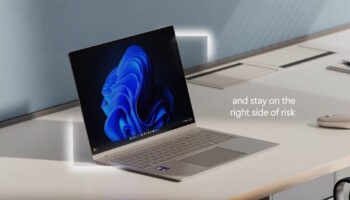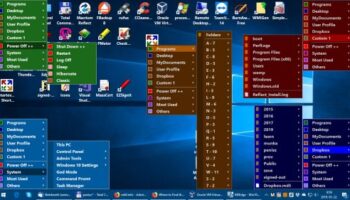Chrome 25 makes extensions get your permission

Google has released Chrome 25 to the beta channel for Windows, Mac, and Linux, and while the previous release wasn’t too surprising this one has some particularly important changes.
Perhaps the most significant will see external extension deployment disabled by default, which means if you install an application on your Windows system, for instance, the author will no longer be able to silently add a Chrome extension as well just by manipulating the Registry. They’ll normally have to ask your permission to install any add-ons within Chrome itself.
Did CNET do right by DISH?
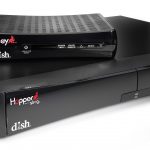
We don't often write about other news sites, but the drama unfolding at CNET today is simply too hard to ignore. Your opinion means something, and I ask for it. Or, keeping with Betteridge's law of headlines, you can answer "yes" or "no".
During last week's Consumer Electronics Show, CNET editors voted DISH Hopper with Sling best of show. But parent company CBS stepped in and nixed the choice, citing on-going litigation. Editors disqualified the device, but not indicating that it had actually won. Today, The Verge editor-in-chief Joshua Topolsky broke the story, and long-time CNET reporter Greg Sandoval resigned in protest. Since, CNET reviews editor-in-chief Lindsey Turrentine posted "CNET's story".
Microsoft releases out-of-cycle patch for Internet Explorer

Patch Tuesday came and went last week without Microsoft addressing a glaring error -- a zero-day flaw in Internet Explorer versions 6 through 8 that attackers use to gain control of a computer. The defect did not affect IE versions 9 and 10, which have been called more secure by some experts.
Now the company is rolling out an uncharacteristic out-of-cycle patch to fix the bug. This follows a manual fix the company released earlier to help users of these legacy browsers protect themselves from attack.
Ding, dong, the PC's dead

So much for that Windows 8 pick-me-up. The PC market got no 5-Hour Energy lift during fourth quarter. If anything, the personal computer is out of shape and out of breath, and no Microsoft personal trainer can change that. Gartner calls the current crisis -- and it is for the WinTel and MacTel folks -- a "structural shift". The tablet is the slimmer and shapelier alternative, and it kicks the PC's ass all over the work-out floor.
"Tablets have dramatically changed the device landscape for PCs, not so much by 'cannibalizing' PC sales, but by causing PC users to shift consumption to tablets rather than replacing older PCs", Mikako Kitagawa, Gartner principal analyst, says. "Whereas as once we imagined a world in which individual users would have both a PC and a tablet as personal devices, we increasingly suspect that most individuals will shift consumption activity to a personal tablet, and perform creative and administrative tasks on a shared PC. There will be some individuals who retain both, but we believe they will be exception and not the norm. Therefore, we hypothesize that buyers will not replace secondary PCs in the household, instead allowing them to age out and shifting consumption to a tablet".
Java 7 update 11 security patch fixes nothing

Oracle has issued an emergency fix for its cross-platform Java software. Java 7 update 11 for Windows, Mac and Linux, and Java 7 Update 11 64-bit for 64-bit versions of Windows and Linux, aims to plug a number of alarming security holes that were being used for phishing attacks and other crimeware.
While update 11 should be considered an essential update for all Java users, researchers have warned that the new build is little more than a sticking plaster for the problem, and recommend users actually disable Java from running inside web browsers.
It's not IF but WHEN Verizon and AT&T follow T-Mobile's subsidy-free plans
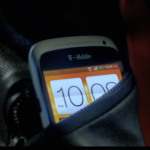
Verizon and AT&T are closely watching how consumers respond to T-Mobile's move to end smartphone subsidies. However, a look at their comments gives me the impression that they haven't had a detailed look at T-Mobile's value plans.
In recent comments, CEOs of both companies stated that they were ready to follow T-Mobile and offer non-subsidized plans if they prove popular with consumers. However, both CEOs caution that consumers don't "like paying upfront for the phone" and are used to getting "low-cost phones". Based on these comments, I'd have to believe they were misquoted in some way because I find it hard to believe that the CEOs of the two biggest carriers in the United States could be so misinformed.
To say Windows will be at the center of U.S. military action is wishful thinking

The U.S. government, which usually is very slow to adopt new technologies, signed an agreement to move much of the Department of Defense to Windows 8. The three-year, $617 million deal for up to two million seats is a good proxy for where American business users are headed. Or is it? Microsoft of course hopes it is, but I think that’s far from a sure thing.
This isn’t just trading Windows XP for Windows 8. The U.S. Navy, which isn’t (yet) included in this deal, only recently signed its own agreement with Microsoft to take the fleet to Windows 7. But Windows 8, being touch-enabled and running all the way from smartphones to super-clusters, is something more. It represents the U.S. government’s best guess as to how it will embrace mobile.
Microsoft unveils Windows Embedded 8 Handheld

After its "non-appearance" at last weeks Consumer Electronics Show in Las Vegas the company Microsoft is front-and-center at this week's National Retail Federation (NRF) Annual Convention & EXPO in New York to show off Windows Embedded 8 Handheld. The operating system a version designed with the retailers in mind.
According to Barb Edson, Microsoft's General Manager of Marketing and Business Development, the company is "introducing our device hardware partners, and showcasing the next generation of mobile line-of-business application experiences with one of our launch customers, showing how Windows Embedded 8 Handheld devices help them deliver on the promise of intelligent systems".
Android developers can use the Google Nexus 10 as a testing device

If CES 2013 and other major trade shows are of any indication, a plethora of Android devices are launched on a frequent basis, sporting different display configurations. For consumers that may not mean much (aside from which device to get next), but developers have to verify if apps are rendered properly across different resolutions and pixel densities. But buying all available smartphones and tablets is not a financially-sound decision, when a Google Nexus 10 gets the job done by itself.
The Samsung-made tablet sports a large 10.1-inch display featuring a whopping 2560 by 1600 resolution and a 300 ppi density. As a result, according to Adam Powell, working as Android framework engineer at Google, the Nexus 10 can be used by app developers to test user interfaces in "pretty much all environments". The question is: "How?"
Malwarebytes Chameleon can remove malware from an already-infected PC

If malware somehow manages to penetrate your PCs defenses then it’s easy to assume you’ll simply download some other antivirus tool to remove it. But life may not be so straightforward. Once installed, some malware will try to prevent you from reaching big antivirus sites, and downloading or running their tools, making the problem much more difficult to tackle.
Unless, that is, you have a copy of Malwarebytes Chameleon to hand.
The Pirate Bay documentary gets a trailer, racks up over 1.3 million views in days

While other file sharing sites have come and gone, closed down by the authorities or voluntarily removed by the owners, The Pirate Bay remains a constant. Sure, if you live in the UK your access to it is now blocked by court order, but the site is still up on the web, still serving links to infringing content, and seemingly unstoppable -- even though plenty of people have tried to stop it.
A forthcoming documentary, TPB AFK, charts the "away from keyboard" true-life story of The Pirate Bay and is set to be released this spring, timed to coincide with a "major film festival". The new trailer for the film, up on YouTube, has already racked up over 1.3 million views, and its success has spurred Simon Klose, the director, into trying to make a little money from it.
Samsung Galaxy S III tops 40 million sales

Little over four months ago Samsung revealed that the company's flagship Android smartphone, the Galaxy S III, had sold more than 20 million units since its introduction in late May, last year. But while that is an impressive feat for any device, more so when it doesn't sport a bitten apple logo on the back, it pales in comparison to the latest Galaxy S III sales numbers announced by the South Korean manufacturer .
In the seven months on the market since the May 29 release, the Galaxy S III smartphone has sold over 40 million units, doubling the previous 20 million figure announced in early September of last year and adding 10 million to its tally since November 2012. According to Samsung, that equates to 190,000 units sold every day, or to put it differently, a little under 132 units per minute, or almost 2.2 Galaxy S IIIs sold every second.
ASUS announces the MeMO Pad, a 7-inch Jelly Bean tablet for $149

ASUS waited until after CES to take the wraps off its MeMo Pad, and what it lacks in specs the Nexus 7 lookalike makes up for in price. With a wallet-friendly MSRP of $149, the MeMo Pad runs Android 4.1 Jelly Bean and is powered by a 1GHz VIA WM8950 CPU and Mali-400 GPU.
The device sports a 10-point multi-touch LED-backlit display with 1024 by 600 resolution, 8 or 16GB of internal storage, and a microSD card slot which will let you boost capacity by an additional 32GB.
Microsoft's stealth presence at CES
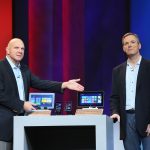
Microsoft pulled out of the Consumer Electronics Show in Las Vegas for 2013 and beyond. Maybe. Maybe not so much. The company was not entirely absent and some of the presence was not even stealthy. It started with CEO Steve Ballmer's surprise appearance on stage during the pre-show keynote address -- an event that Microsoft once owned, but this year belonged to Qualcomm.
In the middle of the presentation Ballmer walked on stage and proceeded to, not only endorse the Snapdragon chips, but to also show off some Windows Phone 8 devices and Windows 8 tablets. It may have seemed like a passing of the torch from the old guard to the new, but the Redmond, Wash.-based company did not stop there. Oh no.
Who is Aaron Swartz?

I am not a geek, hacker or programmer but simple storyteller. Some stories are unbearable to write, such as this one -- about an amazing geek and hacker who died suddenly, sadly on January 11. The world lost someone special two days ago. As you prepared for your weekend fun, he contemplated the last moments of life before taking it. You can blame the US government, as his family does and I do. A bright star has gone dark on the Internet firmament, and we'll never know what won't be seen because of it.
I didn't know Aaron Swartz, just of him. I followed some of his accomplishments and legal woes, which surely were catalyst for his final decision. Around the InterWebs, the 26 year old is described in many ways: "programmer"; "hacker"; "activist"; "advocate". His work almost certainly touches your daily life. Swartz co-authored RSS 1.0; he helped architect Creative Commons; he was serendipitous Reddit cofounder via acquisition of his company Infogami; and he was one of the most vocal, active and successful SOPA (Stop Online Piracy Act) opponents.
Most Commented Stories
© 1998-2025 BetaNews, Inc. All Rights Reserved. Privacy Policy - Cookie Policy.
